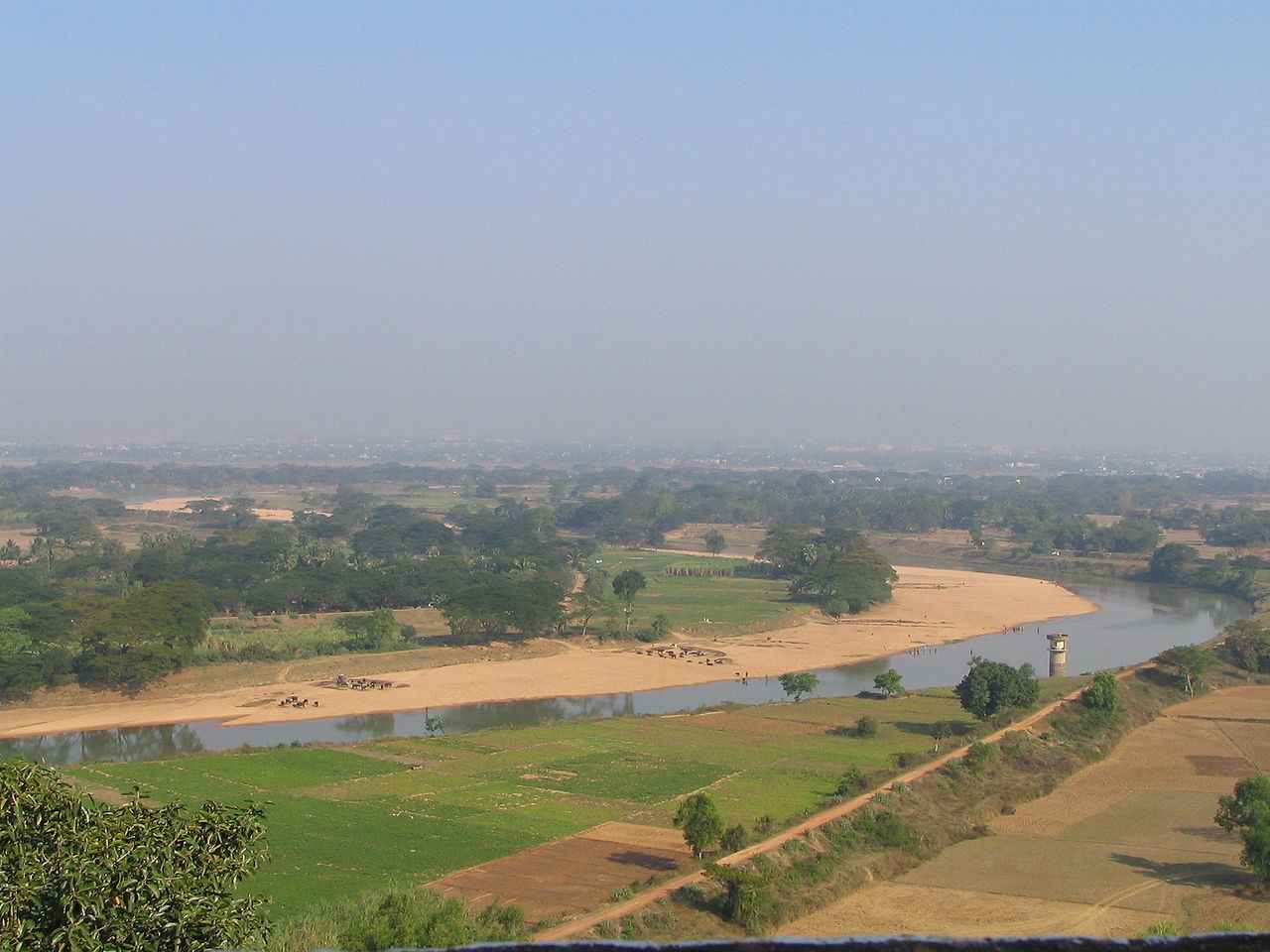The ideology of Buddhism guided Ashoka’s state policy at home and abroad.
After his accession to the throne, Ashoka fought only one major war called the Kalinga war. According to him, 100,000 people were killed in the course of it, several lakhs died, and 150,000 were taken prisoners.
These numbers are exaggerated, because the number ‘a hundred thousand’ is used as a cliche in Ashokan inscriptions.

Image Source: upload.wikimedia.org/wikipedia/commons/thumb/5/5b/Kalinga_battlefield_daya_river_dhauli_hills.jpg/1280px-Kalinga_battlefield_daya_river_dhauli_hills.jpg
ADVERTISEMENTS:
At any rate, it appears that the king was deeply moved by the massacre in this war. The war caused great suffering to the brahmana priests and Buddhist monks, and this in turn brought upon Ashoka much grief and remorse. He therefore abandoned the policy of physical occupation in favour of one of cultural conquest. In other words, bherighosha was replaced with dhammaghosha. We quote below the words of Ashoka from his Thirteenth Major Rock Edict.
When he had been consecrated eight years the Beloved of the Gods, the King Piyadasi, conquered Kalinga. A hundred and fifty thousand people were deported, a hundred thousand were killed and many times that number perished. Afterwards, now that Kalinga was annexed, the Beloved of the Gods very earnestly practised dhamma, desired dhamma, and taught dhamma.
On conquering Kalinga the Beloved of the Gods felt remorse, for when an independent country is conquered the slaughter, death and deportation of the people is extremely grievous to the Beloved of the Gods and weighs heavily on his mind. What is even more deplorable to the Beloved of the Gods, is that those who dwell there, whether brahmanas, shramanas, or those of other sects, or householders who show obedience to their teachers and behave well and devotedly towards their friends, acquaintances, colleagues, relatives, slaves, and servants, all suffer violence, murder and separation from their loved ones ….
Today if a hundredth or a thousandth part of those people who were killed or died or were deported when Kalinga was annexed were to suffer similarly, it would weigh heavily on the mind of the Beloved of the Gods ….The Beloved of the Gods considers victory by dhamma to be the foremost victory ….
ADVERTISEMENTS:
Ashoka now appealed ideologically to the tribal people and the frontier kingdoms. The subjects of the independent states in Kalinga were asked to obey the king as their father and to repose confidence in him. The officials appointed by Ashoka were instructed to propagate this idea among all sections of his subjects.
The tribal peoples were similarly asked to follow the principles of dhamma (dharma). He no longer treated foreign dominions as legitimate areas for military conquest. He took steps for the welfare of men and animals in foreign lands, which was a new thing considering the conditions in those times. He sent ambassadors of peace to the Greek kingdoms in West Asia and Greece.
All this is based on Ashoka’s inscriptions. If we rely on the Buddhist tradition, it would appear that he sent missionaries for the propagation of Buddhism to Sri Lanka and Central Asia, and there is inscriptional evidence to support Ashoka’s initiatives to propagate Buddhism in Sri Lanka. As an enlightened ruler, Ashoka tried to enlarge his sphere of influence through propaganda.
It would be wrong to think that the Kalinga war caused Ashoka to become an extreme pacifist. He did not pursue the policy of peace for the sake of peace under all circumstances, but adopted the practical policy of consolidating his empire. He retained Kalinga after its conquest and incorporated it into his empire. There is also nothing to show that he disbanded the huge army maintained from the time of Chandragupta Maurya.
ADVERTISEMENTS:
Although he repeatedly asked the tribal people to follow the policy of dharma, he threatened adverse consequences if they violated the established rules of social order and righteousness (dharma). Within the empire he appointed a class of officers known as the rajukas, who were vested with the authority not only to reward people but also to punish them when necessary. Ashoka’s policy to consolidate the empire in this way bore fruit. The Kandahar inscription speaks of the success of his policy with the hunters and fishermen, who gave up killing animals and possibly took to a settled agricultural life.